Get Inspired
My Legacy: Eric Winston Pledges His Brain
The Cincinnati Bengals’ Eric Winston is the embodiment of a veteran leader. A 6-foot-7 offensive tackle, he has spent time with four different teams over his 10-year NFL career. It’s Winston’s job not only to protect his own quarterback, but the rest of the players in the league, because since March of 2014, he has been President of the league’s union, the NFL Players Association.
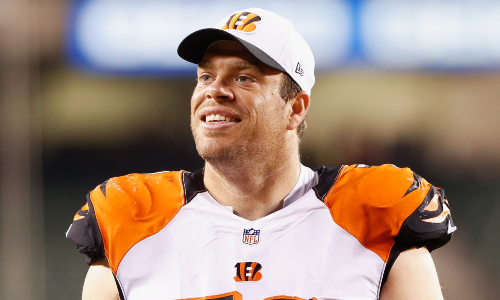
Posted: December 23, 2015
As an outspoken advocate for player health, Winston made headlines this season by calling out the shameful execution of concussion protocols by the St. Louis Rams on November 22 when quarterback Case Keenum took a vicious hit to the head and struggled to get up off the ground. Showing clear signs of concussion, Keenum was not removed from the game and evaluated, but instead dangerously stayed in the game for his team’s potential game-winning drive.
Winston is taking his commitment to player safety a step further. He has pledged his brain to the Concussion Legacy Foundation for CTE research when he passes away as part of the My Legacy campaign. So what’s it like being the president of a union, how does he view concussion awareness among NFL players, and what kind of legacy is leaving by pledging his brain?
Why are you donating your brain to the Concussion Legacy Foundation?
Research on this issue is moving at such a fast pace, but each additional piece of scientific data helps inform players about the risks and allows us to make decisions about making the game safer. Ultimately, I want to be a part of that process that helps the next generation of athletes at all levels have a greater understanding of what science says about head trauma and hopefully that will lead to better treatment and prevention.
What do you want your legacy to be?
First, I want to be known as a player who did the right thing and approached my career in a way that helped other players. I love the game of football and all that it has done for me and my family, but when I look back years from now, it is important that other players appreciate the positions we are taking to make things better for them. Hopefully I’ll be using my brain for a lot longer – I’m hoping I get another 60 years out of it. But if contributing to this research can just help move the needle some, then I will leave the game better than I found it. I really believe in that.
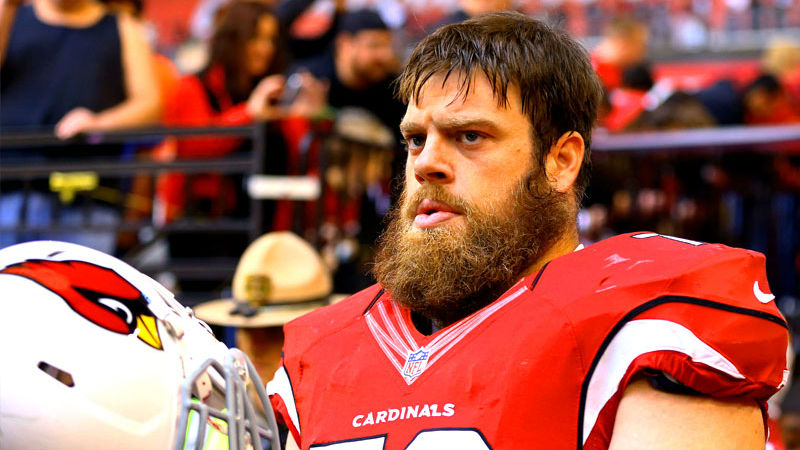
Cincinnati Bengals player and NFL Players Association President Eric Winston has pledged his brain to the Concussion Legacy Foundation for research. Others can do the same. To learn how to pledge your brain, click here.
I’m sure your role as President of the NFLPA has given you a perspective that you might not have had before. What has that experience been like – what’s the most important thing you have learned?
Whenever you have a responsibility like this, you realize how much effort and work it takes to make even minimal gains. I have always felt that I have a responsibility to our players - past, present and future - but when you’re president of the union it adds that weight to it and people look to you to continue a legacy of building upon what has been done in the past. The challenges are very real, but I learned that the best way to improve things for the lives of players is to be uncompromising about certain principles, and health and safety is one of those. At the end of the day, I want to leave this union better for the next guy that comes in, and I think that’s really what it’s always been about. We should be proud of what we have accomplished over the past few years, but we also know we have a long way to go.
Do you think incidents like the Case Keenum concussion playing out in front of a national audience will help spur action in the right direction?
If I have my way, then yes, I hope it will change something and inspire additional improvements. That’s the thing – it’s not just about Case, it’s always about being better. We have made important changes and to the NFL’s credit, they have been willing to work with us on those changes. At the same time, we know that the main reason why they want to work with us on these issues is because we hold them accountable to certain standards. We want the NFL to now hold the teams accountable to the protocols that are in place. Accountability and responsibility cannot fall squarely on the shoulders of players; the same standards that apply to us should apply to the teams, and to everyone. The trainers are professionals, the doctors are professionals, everyone in this league is a professional. We want greater accountability to the hard work and improvements that we have worked together to implement, otherwise it means little. There’s no such thing as a perfect system. There are always going to be things that we fix, and we keep getting better at, and that’s what we’ve got to keep doing.
Read the USA Today article covering Winston's pledge to the Concussion Legacy Foundation.
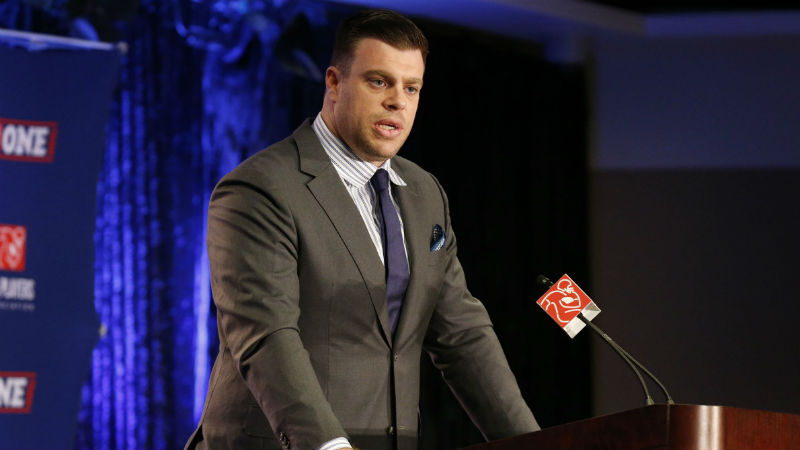
Imagine you were a rookie coming into the league again. What would you tell the 22-year-old Eric Winston as he was starting his career?
I could probably write a short book about everything I would tell myself both on and off the field. Over the last ten years I’ve learned so much. In a lot of ways, I’ve become an adult. When I say adult, I mean a real professional. What it means to be a pro, to carry that responsibility. I’m married and have a family now, so when I look back to when I was 22, I look at myself almost like I was a silly kid. While some of that was fun, at the same time it’s almost like I was a totally different person. So in a lot of ways I wish I could have sped that process up. Because you look back and say “oh man, if you were just a little bit better of a pro” – so I would tell myself to learn what it means to be a pro as fast as possible. Because it took me a little bit, and once I got it I think I really ran with it.
How much have players’ perceptions of concussions and head trauma changed since you first entered the league?
I think especially those in my class who were drafted in the mid-2000’s and played for a long time, our careers have run alongside this concussion legacy. When I came in the league, it was still at the point where you might hear, “here’s some smelling salt and get back out there.” There were still lots of big hits over the middle. ESPN was still rolling “Jacked Up” when I was in the league. So a lot of that was still going on. We didn’t understand a lot of it. And in the mid-point of my career, we’ve switched and we’ve changed, and started to understand this whole thing. Even in the last three years it’s evolved. The guys that are coming in the league now, and are two or three years in, are way different than the guys that are 10 and 11 year vets. No one ever wants to leave a game due to injury and risk losing their job to a replacement, but guys these days are willing to risk it in the sense that they know this isn’t a sprained ankle. This isn’t a hurt knee. Their outlook is totally different, and it’s because of this awareness and all the information we’ve been pushing. And that’s a very good thing.
Do you think NFL players are properly informed about the risks of head trauma?
I think we have done a great job of making the information available to players. At the end of the day we want to make sure we are fully transparent about what we know. It is scary to think how fast information on this issue is flowing and often times it is hard to separate the fear from realities of what is out there. When I first got in the league no one was talking about anything. Now, there are movies, documentaries and books coming out, there’s so much information out there and that’s a good thing. Players need to hear from us, namely the NFLPA, about what science says about the risks and then players have a choice to make about what to do. In the long run, we know that embracing, supporting and funding research can help us learn more.
To learn how to pledge your brain for research, click here.
You May Also Like
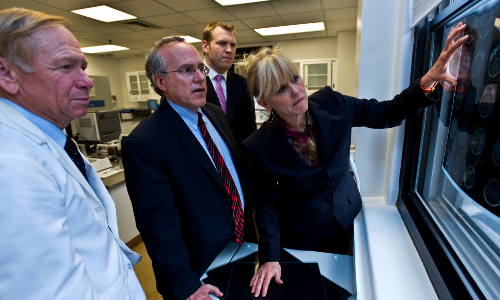
Research is core to everything we do. Explore different research studies to learn more and see if you or a loved one would be a good fit.
Participate in Research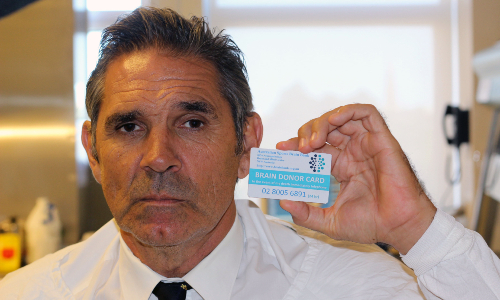
We encourage everyone to pledge to donate their brain to research. Learn more about our CLF Research Registry and how you can sign-up to give back through science.
Pledge Your Brain